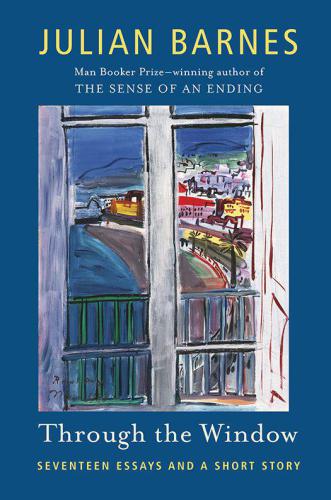
Through the Window
Seventeen Essays and a Short Story
کتاب های مرتبط
- اطلاعات
- نقد و بررسی
- دیدگاه کاربران
نقد و بررسی

October 8, 2012
In this anthology, Man Booker Prize-winning British novelist Barnes (The Sense of an Ending) takes us through a life lived in literature. The 17 essays, previously published in newspapers and magazines, pay tribute to writers beloved of Barnes; the one piece of fiction is called "Homage to Hemingway: A Short Story." There is a lack of unity among the essays, which is to be expected from a showcase of disparate pieces spanning more than 15 years and presented non-chronologically. Many of the pieces shine individually, the anthology is at its best when Barnes writes historically (the detailed account and analysis of the difficulties encountered by generations of translators of Madame Bovary is especially illuminating, or biographically (the essay "George Orwell and the Fucking Elephant" a deeper perspective about how large Orwell looms in British culture and why). However, some of the most personal compositions devolve into unadulterated love-fests, like the opening essay about Penelope Fitzgerald, and the remembrance of John Updike. As a whole, though, most avid readers will find more here to like than to dislike; unsurprisingly, one's mileage may vary based on enthusiasm for, and familiarity with, the books and poems Barnes discusses.

October 1, 2012
The focus on books and literature makes this more cohesive than the usual collection of journalistic miscellany. Barnes deserves a breather after hitting his novelistic peak with the Man Booker Prize-winning The Sense of an Ending (2011), preceded by a best-selling meditation on mortality (Nothing to Be Frightened Of, 2008). The preface to these critical pieces on individual authors or works (plus one short story, "Homage to Hemingway") should strike a responsive chord in anyone who loves books. As Barnes writes, "I have lived in books, for books, by and with books; in recent years, I have been fortunate enough to be able to live from books." He then makes a series of deep, loving plunges into the world of literature, into posthumous celebrations of Penelope Fitzgerald (who had been, in his estimation, "the best living English novelist") and John Updike (whose Rabbit Quartet, he writes, constitutes "the greatest post-war American novel"). Many of the essays concern those who Barnes thinks should be better known, or at least more often read, including three pieces on Ford Madox Ford that explore "his past and continuing neglect" and one on the "marginal" poet Arthur Hugh Clough. Barnes' celebration of the "virtually unknown" 17th-century French author Nicolas-Sebastien Roch de Chamfort ranks with the most interesting here, as does his assessment of the notorious Michel Houellebecq: "There are certain books--sardonic and acutely pessimistic--which systematically affront all our current habits of living, and treat our presumptions of mind as the delusions of the cretinous." Not every piece will connect with every reader, but Barnes is a fine literary companion.
COPYRIGHT(2012) Kirkus Reviews, ALL RIGHTS RESERVED.

November 15, 2012
"Reading is a majority skill but a minority art," writes 2011 Man Booker Prize-winner Barnes (The Sense of an Ending) at the start of this collection of 17 essays and one short story. The essays are about writers, even particular books. There is an exceptional one on George Orwell ("a one-man, truth-telling awkward squad...a kind of non-writer's writer") three appreciations of Ford Madox Ford, and pieces on British, French, and American writers as varied as Rudyard Kipling (on his perspective on France and French views of him), Gustave Flaubert, Michel Houellebecq, John Updike, and Joyce Carol Oates. Some essays are more substantial (e.g., the one on Orwell, the first essay on Ford, one on Flaubert, an appreciation of the neglected poet Arthur Hugh Clough, a piece on novelist Penelope Fitzgerald) than others, but even the slightest piece is worth reading. The short story, "Homage to Hemingway," is more intellectually interesting than emotionally satisfying. VERDICT Barnes's observations on writers should appeal to readers of the literary essay genre. As always, he is a humane and fluent writer. Recommended.--David Keymer, Modesto, CA
Copyright 2012 Library Journal, LLC Used with permission.

























دیدگاه کاربران